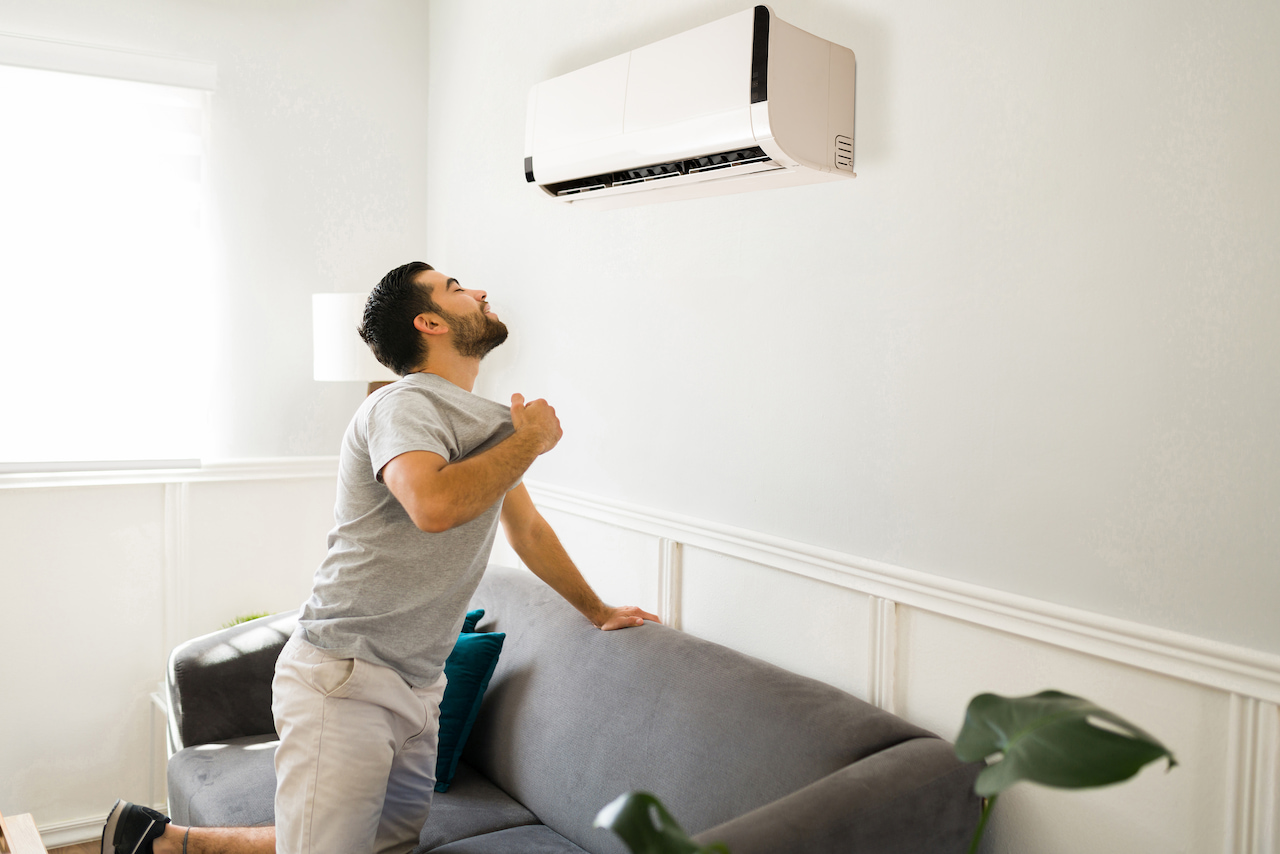If you find yourself sweating despite having your AC on, there may be underlying issues that need attention. In this blog post, we will explore common reasons why your air conditioner might not be cooling effectively and provide troubleshooting tips to address these issues.
Thermostat Settings
The first step in troubleshooting an underperforming air conditioner is to check the thermostat settings. Ensure that the thermostat is set to the desired temperature and the cooling mode is activated. Sometimes, a simple adjustment to the thermostat can make a significant difference.
Dirty or Clogged Air Filters
Clogged or dirty air filters are a frequent culprit behind inefficient cooling. Over time, filters accumulate dust and debris, restricting airflow and reducing the system’s efficiency. Regularly inspect and clean or replace air filters to ensure optimal performance. This simple maintenance task can improve cooling efficiency and extend the lifespan of your AC unit.
Refrigerant Levels
Insufficient refrigerant levels can lead to poor cooling performance. Refrigerant is crucial for the heat exchange process in the air conditioning system. If there is a leak or if the refrigerant levels are low, the AC won’t cool the air effectively. It’s essential to hire a professional HVAC technician to inspect and recharge refrigerant levels as needed.
Dirty Evaporator and Condenser Coils
The evaporator and condenser coils play a vital role in the heat exchange process. Over time, these coils can accumulate dirt and grime, hindering their ability to absorb and release heat efficiently. Regular maintenance, including cleaning the coils, can significantly improve cooling performance.
Blocked or Restricted Airflow
Proper airflow is crucial for efficient cooling. Inspect the vents and registers to ensure they are not blocked by furniture or other obstacles. Additionally, check for obstructions in the ductwork that might be limiting the airflow. Adequate ventilation is essential for optimal cooling, and addressing airflow issues can make a noticeable difference.
Inadequate Insulation
Insufficient insulation can contribute to poor cooling performance. Check the insulation in your home, especially in the attic and walls, to prevent heat from infiltrating your living spaces. Proper insulation helps your AC unit maintain a consistent and comfortable indoor temperature.
Faulty Compressor
The compressor is the heart of the air conditioning system, responsible for circulating refrigerant and facilitating the heat exchange process. If the compressor is malfunctioning, it can result in inadequate cooling. A professional HVAC technician should inspect and repair or replace a faulty compressor.
Incorrect Unit Size
If your air conditioner is too small for the space it’s intended to cool, it will struggle to maintain the desired temperature. Conversely, an oversized unit may short cycle, leading to inefficiency. Consult with a professional to ensure that your AC unit is appropriately sized for your home or specific room requirements.
Conclusion
When your air conditioner is not cooling enough, a systematic approach to troubleshooting can help identify and address the underlying issues. Regular maintenance, prompt repairs, and professional assistance when needed can keep your AC unit running efficiently, ensuring a cool and comfortable indoor environment even during the hottest days.
